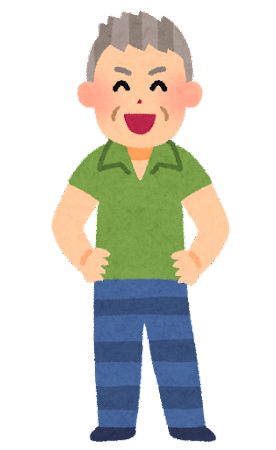ライフハックとしてではなく、英語学習にも極めて有用なのが、著名人が10分程度のプレゼンを行うTEDです。
TED Talksとは、あらゆる分野のエキスパートたちによるプレゼンテーションを無料で視聴できる動画配信サービスのことです。10年ほど前にサービスが開始されてから、政治、心理学、経済、日常生活などの幅広いコンテンツが視聴できることから人気を集めています。
RareJob English Lab
TEDは4000を超える膨大な数の動画があります。しかし慣れないうちは、動画の探し方や視聴のコツが分かりませんよね。この記事では、数多くのTEDを見てきた管理人(塩@saltandshio)が、心を揺さぶられたトークをあらすじと一緒にご紹介します。
ビジネス英会話を効率よく身につけたい方におすすめスクール
シェーン英会話
シェーンは1977年の創業以来、ネイティブ講師が英語を英語で教える「直接教授法」を採用しています。首都圏におけるスクール拠点数は、ネイティブ講師の英会話スクールでNo.1。駅から近いスクールが多いので通いやすく時間を有効に使えます。
スピークバディ パーソナルコーチング
1日1時間の短期集中トレーニングで、あなたの英語力向上をコーチが全力でサポートします。あなたの英語の世界が、劇的に変わります。
ジュリアン・トレジャー:聞き上手になる5つの方法
今日の喧騒の中で、私たちの聴く能力が失われてきています」と語るのは音の専門家のジュリアン・トレジャーです。トレジャーは、周囲の音と周囲の人の音を意識的に聴き取るための、耳を再チューニングするための5つのエクササイズをご紹介します(約8分)。
[PR]わかってくれないを解決!家族や仕事など相手に合った「伝え方」のコツ!私たちの聴く能力が失われてきている
いま、私たちの聴く能力が失われてきています。意思疎通の大体6割は聴くという行為が占めるにも関わらず、これが上手に出来なくなってきているのです。しかも、一般的な値として耳からの情報は25%しか保持されません。
私たちの耳には実に素晴らしい機能が備わっています。瞬時に雑音と、自分にとって必要な音を聞き分け、必要な音だけを私たちに届けてくれるのです。特に、名前を敏感に聞き取ります。
つまり、私たちがふと耳を傾けている言葉は、あなたが無意識に気になっている言葉といってもいいでしょう。
聴覚において意志はとても重要です!
Intention is very important in sound, in listening.
そして、私たちがいつもどんな情報を聞き取っているかによって、自分の中にいまの現実を作り上げているといっても過言ではありません。
[PR]検定試験合格者累計140万人!スマホ対応☆国家資格ほか資格取得ならSMART合格対策講座音は時間・意味である
『聴こう』とする意志は、対人関係においてとても重要なことですが、これが全てではありません。私たちは様々な音から空間の広さや、まわりにどれだけ人がいるかという情報も判断しているのです。
更に音は時間をも司ります。音には、常に時間が埋め込まれているのです。
And sound places us in time as well, because sound always has
time embedded in it.
『音には時間が埋め込まれている』とは素敵な言葉ですね。たしかに私たちが兼ね備えている五感のなかで聴覚こそが、過去から未来への時間の流れを感じる主たる感覚といってもよいでしょう。
しかしいま、この聴く力に由々しき事態が起きています。私たちの聴く力がいま、大きく損なわれてきているのです。なぜそのようなことになってしまったのでしょうか。
私たちの聴く力が衰えた原因のひとつとして、技術の進化があります。記録する媒体の機能が、著しく向上したためです。模写にはじまり、録音、録画が誕生しました。技術が進歩したことによって、逆に私たちは注意深く聴き、正確に情報を得ようとする能力が落ちてしまったのです。
[PR]まずは無料カウンセリング”続けるため”の オンライン英語コーチ「スピークバディ パーソナルコーチング」意識的に聴けば必ず理解が生まれる
さらに、現代はあまりにも音にまみれています。視覚的にも聴覚的にも邪魔なものが散乱しており、聴くことを困難にしているのです。まさに、「耳が疲れた」という状況といえます。加えて、ヘッドフォンをする人々が増えました。
彼らは、巨大なパブリック空間をパーソナルスペースに変えてしまっています。これでは、人の話を聴かなくなってしまうのは当然です。私たちは自らの意思で聴く能力を衰えさせているのです。
個人個人の『聴く』に特化した行為は、次第に忍耐力まで奪います。昨今では雄弁なスピーチよりもその言葉を端的に抜粋した言葉のほうが好まれています。会話が一方通行の情報手段に取って代わられようとしているのです。
聴くという行為は理解の手段であって、この能力の喪失は些細なものでなく重大な問題です。
意識的に聴けば必ず理解を生みます。
This is a serious problem that we’re losing our listening. This is not trivial, because listening is our access to understanding.
Conscious listening always creates understanding.
しかし、逆を言えば意識的に相手の言葉に耳を傾けなければ、争いごとが起きてしまいます。そうならないためにも、私たちはあらためて聴く力を鍛える必要があるのです。
[PR]無料体験レッスン実施中!全国208校、創業40年の老舗英会話スクール【シェーン英会話】聴く力を鍛える5つの方法
では、一体どのようにして聴く力を鍛えれば良いのでしょうか。それは次の5つです。
- 沈黙
- 自分の周りに単一の音源がいくつあるか聞き分ける
- ありきたりな音を楽しむ
- 適切な場所で聴く
- RASA(Receive,Appreciate,Summarise,Ask)
順番に説明していきましょう。
沈黙
1日3分の無音エクササイズは、私たちの耳をリセット(チューニング)してくれます。完全な無音状態でなくても、静かな状態なら大丈夫です。このエクササイズによって、静かな音が聞き取れるようになります。
自分の周りに単一の音源がいくつあるか聞き分ける
カフェや、乗り物のなかでひとつだけ音を聞き取ってみましょう。また、鳥のさえずりや、木々が揺れる音も聞き分けてみてください。このエクササイズはリスニングの質を高めてくれます。
ありきたりな音を楽しむ
ありふれた音も、注意して聴くとおもしろいものです。ヘッドフォンを外して、あたりまえの音に親しんでみましょう。
適切な場所で聴く
聴き取る対象に合せて、一番適切な場所に移動しましょう。聴く対象に合わせて、意識づけしてゲームのように聴く場所を変えてみましょう。
RASA(Receive,Appreciate,Summarise,Ask)
- Receive:話者の話を注意深く聴くこと
- Appreciate:意思表明(相槌を打つ)をすること
- Summarise:要約する
- Ask:質問をする
RASAはコミュニケーション術としても使えますね。
[PR]無料会員登録。あなたにぴったりのカウンセラーに出会える! ココナラの【心のお悩み相談】まとめ:意識的に聴く力は世界を平和にする
あたりまえにある音に、私たちはどれだけ意識を傾けているでしょうか。
人生を最大限楽しむには意識的に聴くことが必要不可欠だと考えています。時間と空間をつなぎ、周囲の世界と私たちをつないでくれます。互いの理解をつなぐのはもちろん、精神的にも私たちをつないでくれます。私の知る限りスピリチュアルな道の根底には全て、リスニングと瞑想があるからです。
But I believe that every human being needs to listen consciously in order to live fully — connected in space and in time to the physical world around us, connected in understanding to each other, not to mention spiritually connected, because every spiritual path I know of has listening and contemplation at its heart.
いきなりあれこれすることはありませんが、“聴く”ことを意識すれば新たな発見があるはずです。今日は耳からイヤホンやヘッドフォンをはずして、身近な音に親しんでみませんか?
英語全文
We are losing our listening. We spend roughly 60 percent of our communication time listening, but we’re not very good at it. We retain just 25 percent of what we hear. Now not you, not this talk, but that is generally true. Let’s define listening as making meaning from sound. It’s a mental process, and it’s a process of extraction.
<全文を読む>▼クリック▼
And then there is a whole range of filters. These filters take us from all sound down to what we pay attention to. Most people are entirely unconscious of these filters. But they actually create our reality in a way, because they tell us what we’re paying attention to right now. Give you one example of that: Intention is very important in sound, in listening. When I married my wife, I promised her that I would listen to her every day as if for the first time. Now that’s something I fall short of on a daily basis. (Laughter) But it’s a great intention to have in a relationship.
But that’s not all. Sound places us in space and in time. If you close your eyes right now in this room, you’re aware of the size of the room from the reverberation and the bouncing of the sound off the surfaces. And you’re aware of how many people are around you because of the micro-noises you’re receiving. And sound places us in time as well, because sound always has time embedded in it. In fact, I would suggest that our listening is the main way that we experience the flow of time from past to future. So, “Sonority is time and meaning” — a great quote.
I said at the beginning, we’re losing our listening. Why did I say that? Well there are a lot of reasons for this. First of all, we invented ways of recording — first writing, then audio recording and now video recording as well. The premium on accurate and careful listening has simply disappeared. Secondly, the world is now so noisy, (Noise) with this cacophony going on visually and auditorily, it’s just hard to listen; it’s tiring to listen. Many people take refuge in headphones, but they turn big, public spaces like this, shared soundscapes, into millions of tiny, little personal sound bubbles. In this scenario, nobody’s listening to anybody.
We’re becoming impatient. We don’t want oratory anymore, we want sound bites. And the art of conversation is being replaced — dangerously, I think — by personal broadcasting. I don’t know how much listening there is in this conversation, which is sadly very common, especially in the U.K. We’re becoming desensitized. Our media have to scream at us with these kinds of headlines in order to get our attention. And that means it’s harder for us to pay attention to the quiet, the subtle, the understated.
This is a serious problem that we’re losing our listening. This is not trivial. Because listening is our access to understanding. Conscious listening always creates understanding. And only without conscious listening can these things happen — a world where we don’t listen to each other at all, is a very scary place indeed. So I’d like to share with you five simple exercises, tools you can take away with you, to improve your own conscious listening. Would you like that?
(Audience: Yes.) Good.
The first one is silence. Just three minutes a day of silence is a wonderful exercise to reset your ears and to recalibrate so that you can hear the quiet again. If you can’t get absolute silence, go for quiet, that’s absolutely fine.
Second, I call this the mixer. (Noise) So even if you’re in a noisy environment like this — and we all spend a lot of time in places like this — listen in the coffee bar to how many channels of sound can I hear? How many individual channels in that mix am I listening to? You can do it in a beautiful place as well, like in a lake. How many birds am I hearing? Where are they? Where are those ripples? It’s a great exercise for improving the quality of your listening.
Third, this exercise I call savoring, and this is a beautiful exercise. It’s about enjoying mundane sounds. This, for example, is my tumble dryer. (Dryer) It’s a waltz. One,two,three. One,two,three. One,two,three. I love it. Or just try this one on for size. (Coffee grinder) Wow! So mundane sounds can be really interesting if you pay attention. I call that the hidden choir. It’s around us all the time.
The next exercise is probably the most important of all of these, if you just take one thing away. This is listening positions — the idea that you can move your listening position to what’s appropriate to what you’re listening to. This is playing with those filters. Do you remember, I gave you those filters at the beginning. It’s starting to play with them as levers, to get conscious about them and to move to different places. These are just some of the listening positions, or scales of listening positions, that you can use. There are many. Have fun with that. It’s very exciting.
And finally, an acronym. You can use this in listening, in communication. If you’re in any one of those roles — and I think that probably is everybody who’s listening to this talk — the acronym is RASA, which is the Sanskrit word for juice or essence. And RASA stands for Receive, which means pay attention to the person; Appreciate, making little noises like “hmm,” “oh,” “okay”; Summarize, the word “so” is very important in communication; and Ask, ask questions afterward.
Now sound is my passion, it’s my life. I wrote a whole book about it. So I live to listen. That’s too much to ask from most people. But I believe that every human being needs to listen consciously in order to live fully — connected in space and in time to the physical world around us, connected in understanding to each other, not to mention spiritually connected, because every spiritual path I know of has listening and contemplation at its heart.
That’s why we need to teach listening in our schools as a skill. Why is it not taught? It’s crazy. And if we can teach listening in our schools, we can take our listening off that slippery slope to that dangerous, scary world that I talked about and move it to a place where everybody is consciously listening all the time — or at least capable of doing it.
Now I don’t know how to do that, but this is TED, and I think the TED community is capable of anything. So I invite you to connect with me, connect with each other, take this mission out and let’s get listening taught in schools, and transform the world in one generation to a conscious listening world — a world of connection, a world of understanding and a world of peace.
Thank you for listening to me today.
<閉じる>
\ ほかにも気になるトークが満載! /








